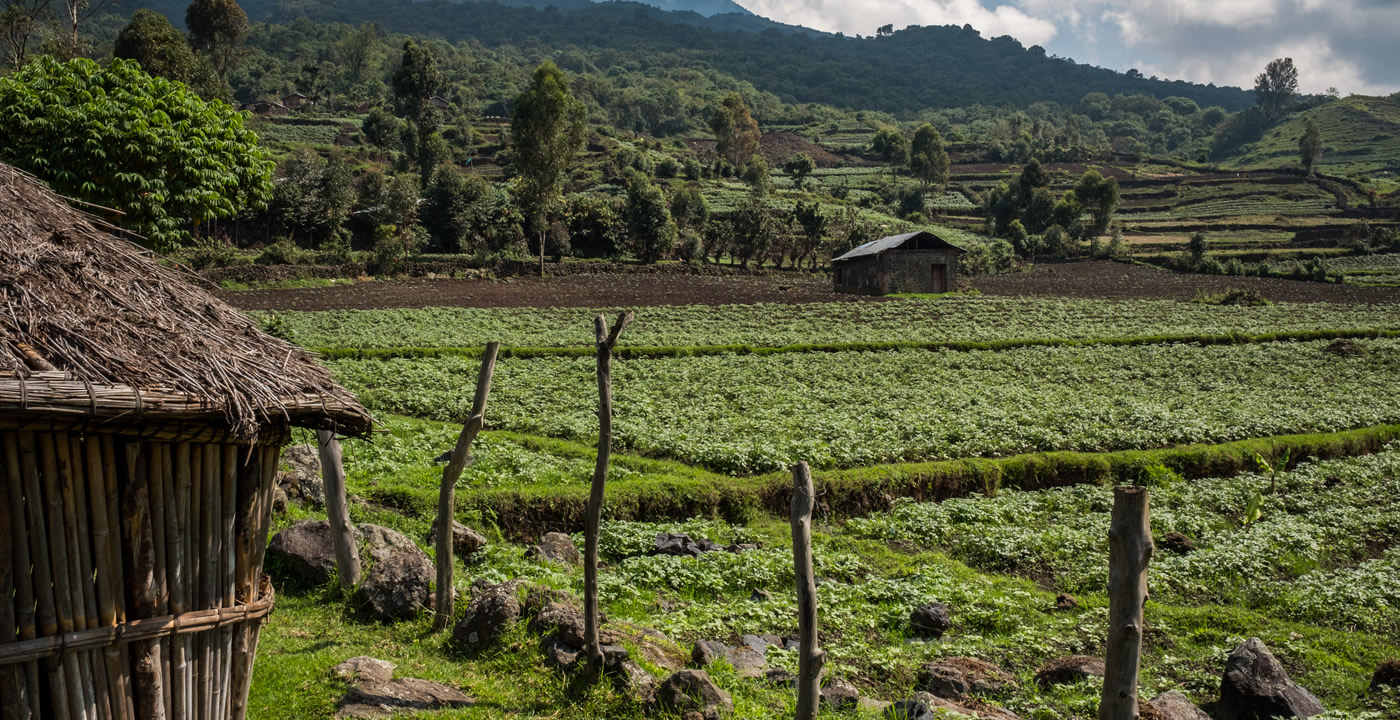With high population growth rate in Uganda, there is a growing need to produce more food which has resulted into increased demand for agricultural land. More 80% of the Ugandans live in rural areas and over 95% of these rural people derive their livelihoods from agriculture! This increasing pressure and demand for land continues to push back the boundaries of protected areas, rising encroachment and destruction of wetlands, forests and national park buffers. Rural agriculture productivity continues to decline due to land degradation that is resulting into lower and less reliable crop yields and therefore, more land is demanded to meet food requirements of big families. Many farmers remain vulnerable to extreme weather conditions as they depend on rain-fed agriculture and this is causing food insecurity, and poor nutrition like in Karamoja region.
Conventional agricultural practices that have supported these communities in the past including slash-and-burn cultivation and crop rotation, can no longer provide sufficient yields for a growing population and these unsustainable practices contribute to land degradation in many critical ecosystems across the country. The situation is worsened by changing weather patterns that impact on rain-feed agriculture leading to poor and low produces. This leaves them with no choice but to encroach on protected areas and critical ecosystems to produce enough to feed their families. At Care of Nature, through our Care for People, we are helping communities to rethink how food is produced. We support host communities to engage in sustainable and smart agriculture that offers more yields on limited land. We are also supporting farmers to look into the value chain to address low agricultural productivity, over-dependence on a few main crops and high food loss due to poor storage options. We support partner communities with quality seeds and where we have smart agriculture programs, we help farmers to form cooperatives for better price negotiation of their cash crops, support farms to improve their post-harvest processing, storage and marketing. Whether it is better coffee seedlings for our farmers on slopes of Elgon and Rwenzori mountains or better yields of beans and maize in Nakasongola and Mubende, we ensure that farmers connect our efforts to Nature conservation

